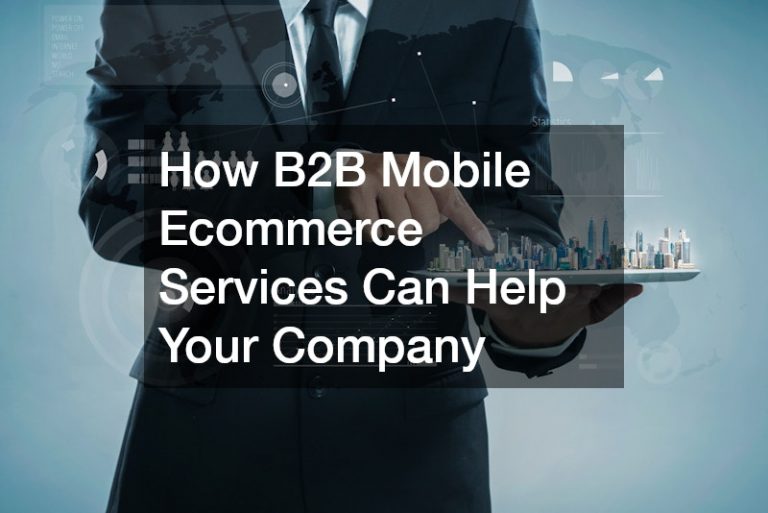In today’s digital era, establishing and running a successful online business requires precise strategies and careful planning. Small businesses online face unique challenges and opportunities that require a fresh perspective compared to traditional brick-and-mortar stores. To thrive, these businesses must not only attract potential customers but also build lasting relationships with them.
From mastering website development to implementing robust marketing strategies, there are multiple facets to consider. Additionally, understanding the nuances of SEO, leveraging social media, and providing excellent customer service play pivotal roles. This article delves into the essential components that small businesses online need to succeed and provides actionable insights for budding entrepreneurs.
How Can Small Businesses Online Build a Strong Brand Identity?
Building a strong brand identity is the cornerstone of any successful small business, especially online. Your brand identity sets you apart from your competitors and creates a recognizable image amongst your target audience. It involves more than just a logo; it encapsulates your business values, mission, and overall persona.
To build a compelling brand identity, start by clearly defining your value proposition. Small businesses online need to convey what makes them unique and why customers should choose them over larger corporations. Utilize marketing strategies like storytelling and visual content to communicate your brand’s story and values effectively.
Another crucial step is consistency in all brand elements, from your website to social media profiles. Consistent branding helps in increasing brand recall and builds trust. Invest in professional website development to create a seamless representation of your brand online. Ensure that your brand’s voice and message remain consistent across all platforms to foster a cohesive online presence.
What Are the Best Practices for Creating a User-Friendly Website?
A user-friendly website is critical for the success of small businesses online. First impressions matter, and your website is often the first touchpoint between you and potential customers. For this reason, website development should focus on creating an intuitive, visually appealing, and easily navigable site.
Start by prioritizing mobile responsiveness. With a significant portion of web traffic coming from mobile devices, small businesses online can’t afford to overlook this. Your website should load quickly and look great on all screen sizes. Utilize simple navigation menus and clear CTAs (Calls to Action) to guide users effortlessly through your site.
Another essential aspect is to ensure your website provides valuable content. Include detailed product descriptions, FAQs, and informative blog posts that address the needs of your audience. Custom features like 3d maps can enhance user experience by providing additional context and value to your customers. Local property managers and real estate agents could particularly benefit from this feature by offering virtual tours.
How to Implement Effective SEO Strategies?
Search Engine Optimization (SEO) is a fundamental strategy for increasing website traffic and ensuring your site ranks well on search engines. For small businesses online, effectively implementing SEO can mean the difference between being found by potential customers and being lost in the vast sea of the internet.
Begin with on-page SEO optimizations. Ensure that your website’s meta titles, meta descriptions, header tags, and URL structures are all optimized with relevant keywords. A focus keyword such as ” buy lamb meat online” can help but make sure it fits naturally within your content. High-quality content that provides value and answers questions is essential.
Off-page SEO strategies are equally important. Backlinking is a powerful way to improve your site’s domain authority. Engage in guest blogging, participate in industry forums, and collaborate with other small businesses online to gain credible backlinks. Local SEO strategies, like registering on Google My Business, also help attract nearby customers and improve visibility for local searches.
How Significant is Social Media Presence for Small Businesses?
In the digital landscape, social media presence is indispensable for small businesses online. Platforms like Facebook, Instagram, and Twitter offer direct communication channels between businesses and their audience. They are ideal for sharing updates, running promotions, and engaging with customers on a personal level.
Consistent posting and interaction are crucial. Small businesses online should develop a content calendar to ensure they are active and engaging regularly. Sharing user-generated content, running contests, and responding to comments and messages foster a sense of community and customer loyalty.
Additionally, paid social media advertisements can significantly increase website traffic and brand awareness. Targeted ads allow small businesses to reach specific demographics, resulting in higher conversion rates. By leveraging both organic and paid social strategies, small businesses can maximize their social media efforts.

What Role Does Content Marketing Play in Business Success?
Content marketing is pivotal for establishing authority and attracting potential customers to small businesses online. It involves creating and sharing valuable content to engage and retain a clearly defined audience – ultimately leading to profitable customer action.
Start by identifying your target audience and understanding their needs and preferences. This will guide your content creation process, ensuring you provide information that resonates with your audience. From blog posts and ebooks to videos and infographics, diverse content formats can captivate different segments of your audience.
Consistency is key in content marketing. Regularly update your blog, social media channels, and other content platforms with fresh, relevant content. This not only keeps your audience engaged but also signals to search engines that your site is active, helping to increase website traffic over time.
How to Utilize Email Marketing Effectively?
Email marketing remains one of the most effective tools for small businesses online to nurture relationships and drive sales. A well-crafted email campaign can inform, engage, and urge action from your subscribers.
First, build a quality email list by offering incentives such as discounts, free resources, or exclusive content in exchange for email sign-ups. Ensure that your email content provides value; this can include newsletters, promotional offers, or updates about new products or services like “buy lamb meat online.”
Personalization is crucial in email marketing. Address recipients by name and tailor content to their preferences and past behavior. Use marketing automation tools to segment your email list and send targeted emails automatically. This enhances user experience and improves engagement rates, ultimately driving conversions for small businesses online.
What Tools and Technologies Are Essential for Small Businesses Online?
Leveraging the right tools and technologies can streamline operations and significantly boost productivity for small businesses online. For instance, e-commerce platforms such as Shopify or WooCommerce make setting up and managing an online store intuitive and efficient.
In addition to e-commerce platforms, Customer Relationship Management (CRM) tools like HubSpot and Salesforce are vital. They help in managing customer interactions, tracking sales, and nurturing leads. These tools allow small businesses online to optimize their customer relationships and improve overall sales processes.
Other important tools include marketing automation software and analytics platforms. Automation tools reduce manual work and ensure consistency in marketing efforts, while analytics platforms provide valuable insights into website traffic, customer behavior, and overall performance. Utilizing these technologies helps small businesses online make data-driven decisions.

How to Provide Excellent Customer Service Online?
Exceptional customer service is a cornerstone of success for small businesses online. Since online interactions lack the personal touch of physical stores, providing stellar customer service can set you apart and foster customer loyalty.
Start by ensuring multiple channels for customer support, including email, live chat, and social media. Quick and effective responses to customer inquiries demonstrate that you value their time and business. A well-designed FAQ section on your website can also preemptively address common questions, reducing the need for direct interactions.
Personalization plays a significant role in online customer service. Use CRM tools to keep track of customer interactions and preferences. Personalized follow-ups and showing appreciation for their business can turn a one-time buyer into a lifelong customer. Small businesses online that prioritize excellent customer service can establish a positive reputation and drive word-of-mouth referrals.
How Can Small Businesses Online Optimize Sales Funnels?
Optimizing the sales funnel is crucial for converting website visitors into paying customers. A well-structured sales funnel guides potential customers through the journey from awareness to purchase, ensuring minimal drop-off at each stage.
The first step in funnel optimization is attracting potential customers, which can be done through content marketing, social media, and SEO strategies. Captivating content and targeted ads increase website traffic and build initial interest. Once visitors are on your site, engage them with compelling landing pages and clear CTAs.
To convert these visitors, offer value through incentives such as limited-time discounts, free trials, or bundled products. Email marketing campaigns can effectively nurture leads, guiding them towards making a purchase. Regular analysis and tweaking of your sales funnel stages help identify areas of improvement, ensuring maximum conversion rates for small businesses online.
What Are the Legal Considerations for Small Businesses Online?
Small businesses online must navigate various legal considerations to ensure compliance and avoid potential liabilities. First and foremost, registering your business and understanding the legal requirements in your jurisdiction is essential. This includes obtaining necessary licenses and permits based on the nature of your business.
Data privacy and protection are critical areas of concern. Implementing and adhering to privacy policies that comply with regulations such as GDPR (General Data Protection Regulation) and CCPA (California Consumer Privacy Act) is necessary. Clearly inform customers about data collection practices and ensure their data is securely stored.
Additionally, intellectual property considerations such as trademarks, copyrights, and patents should not be overlooked. Protecting your brand and products from infringement ensures your intellectual assets remain yours. Engaging legal experts can provide clarity and help navigate complex legal landscapes for small businesses online.

What Are the Common Challenges and How to Overcome Them?
Small businesses online face a variety of challenges, including high competition, limited budgets, and technological hurdles. Understanding these challenges and developing strategies to overcome them is crucial for sustained success.
Competing with larger, established businesses can be daunting. Differentiating your brand through unique value propositions and exceptional customer service can help you stand out. Focus on niche markets and build strong relationships with your target audience to carve out your space.
Limited budgets often constrain marketing and other operational efforts. Prioritizing cost-effective strategies such as content marketing and email marketing can yield significant returns with minimal investment. Leveraging free or affordable tools for website development and marketing automation can also help manage costs while maintaining efficiency.
What Are the Key Metrics Small Businesses Should Monitor?
Monitoring key metrics is essential for small businesses online to gauge their performance and make strategic decisions. Tracking the right metrics helps in understanding what is working, what needs improvement, and where to allocate resources effectively.
Begin with basic metrics such as website traffic, conversion rates, and bounce rates. These provide insights into how well your website attracts and retains visitors. Analyze customer acquisition costs (CAC) and customer lifetime value (CLV) to assess the efficiency of your marketing efforts and the profitability of your customer base.
Additionally, monitor metrics related to sales performance, such as average order value (AOV) and revenue per visitor. For social media, track engagement metrics like likes, shares, and comments to evaluate the effectiveness of your content.
Regularly review and analyze these metrics to identify trends and make informed decisions. Adjust your strategies based on the data to optimize performance and drive growth for your small business online.
Conclusion
Navigating the online business landscape can be challenging, but with the right strategies and tools, small businesses online can thrive. From building a strong brand identity and creating a user-friendly website to mastering SEO and utilizing social media, multiple facets contribute to online success.
Effective content marketing, targeted email campaigns, and excellent customer service further enhance a small business’s online presence. By understanding and leveraging essential tools and technologies, and addressing common challenges with strategic solutions, entrepreneurs can ensure their online ventures achieve long-term success.
If you’re starting a small business, there are countless opportunities to get started like with certificates of deposit or a pre licensing course online. Once you’re in full swing with consistent revenue, whether running a print shop or providing online services, ultimately, small businesses online that remain adaptable and customer-focused are well-positioned to navigate the digital marketplace and enjoy sustained growth.








